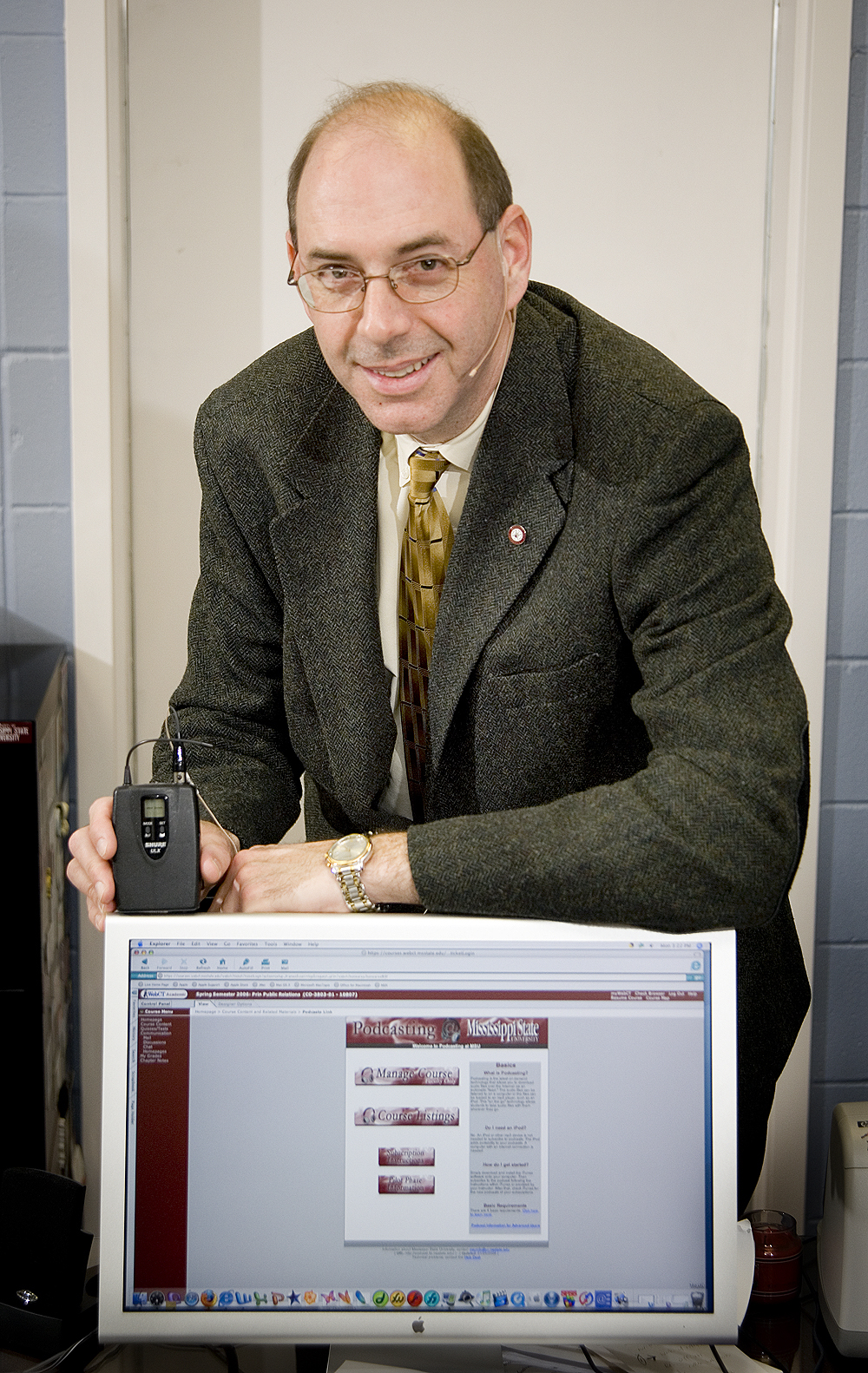Contact: Maridith Geuder

STARKVILLE, Miss.--Starkville resident Vicki Brown is a fulltime employee, a mother--and a Mississippi State student.
Because personal commitments keep her from attending university classes during work hours, she's utilizing a new alternative that's the next best thing: podcasting.
"I can't say enough good things about podcasting," said Brown, operations manager for MSU's Division of Continuing Education and Academic Outreach. "I feel like I'm actually in the classroom."
She is enrolled in principles of public relations, a class taught by communication department head John Forde, one of three faculty members participating in the pilot podcast project. The on-demand technology allows students to download audio files from the Internet and listen at their convenience, using a desktop computer or an MP3 player such as an iPod.
The collaboration between MSU's offices of the Provost and Information Technology Services provides an "on-the-go" technology for busy students, Forde said.
"I really enjoy face-to-face contact with students," said the 20-year teaching veteran. "I don't want to diminish that dynamic, and I see podcasting as an enhancement."
While this is Forde's first experience with podcasting, he's a longtime fan of the technology and has about 2,000 iTunes downloaded on his personal iPod.
"With in-person lectures, PowerPoint summaries I post to the Web, lecture notes posted to the Web, and podcasting, I'm trying to provide as much information as possible with as many different methods as I can," he explained. "I want my students to do well."
Forde has more than 100 students enrolled in his traditional, in-person class, with an additional 25 enrolled online. Among the online students are a husband and wife, as well as students from Meridian, Nashville, Laurel, and Mantachie.
Forde, along with associate chemistry professor Stephen Foster and School of Human Sciences professor Michael E. Newman, teach in a podcasting environment created by the Information Technology Services team. Using a Web-based interface, each professor records audio at a designated technology lectern.
The recorded audio file is automatically processed and made available to students via podcast or download.
"I'm teaching six graduate students, most of whom live in other places," Newman said. "Not one of them owns an iPod, so they're using the Internet to access audio files of the class I teach in agricultural information science and education."
Newman said his school long has used interactive video to teach students, and he views podcasting as an "innovative way to reach students."
Students may attend the once-a-week lectures, and review using the audio version published to the Web. "They also have access to information published to a WebCT site, so they can cross-reference," Newman said. "Using multiple media, students have multiple ways to access information."
Foster said his students have been especially enthusiastic about a podcast of a "help" session before his first exam. "It allowed students to listen to the discussion even if they had other commitments during the review time period. This made everyone feel they had participated in the session."
All three faculty members said they plan to conduct end-of-semester surveys to quantify the usefulness of podcasting.
But for students like Vicki Brown, the technology is providing a way to continue her education and maintain a full work schedule.
"There always will be people like me, who cannot, for one reason or another, attend traditional classes," she said. "Podcast is the way to go."
For more information, contact Forde at (662) 325-8033 or jforde@comm.msstate.edu; Newman, at 325-3462 or mnewman@ext.msstate.edu; or Foster, at 325-8854 or sfoster@chemistry.msstate.edu.